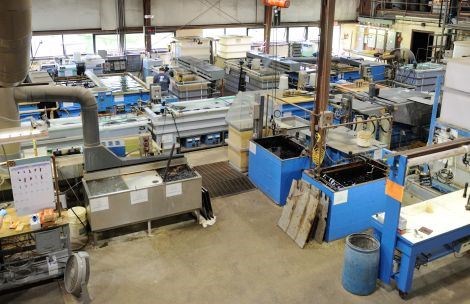Poly-Plating’s Nickel Plating Process Earns Accepted Status from FDA
Device Master Files (MAFS) available for those seeking a Premarket Application (PMA) or 510(k) approval for medical devices with the Food and Drug Administration.

Poly-Plating Inc., a metal plating facility located in Chicopee, Massachusetts, has made its Device Master Files (MAFS) available for those seeking a Premarket Application (PMA) or 510(k) approval for medical devices with the Food and Drug Administration.
Poly-Plating’s submission for an MAF for its proprietary Poly-Ond process has been accepted by the FDA. MAFs are repositories of confidential information used in support of a PMA or 510(k) submission. To help preserve the trade secrets of the ancillary medical device industry and at the same time facilitate the sound scientific evaluation of medical devices, the FDA established the device master file system.
Those seeking FDA approval for a device that utilizes the Poly-Ondprocess may request authorization from Poly-Plating to allow information in the MAF to be submitted as part of the approval process.
Poly-Plating, Inc. is a cutting-edge, innovative nickel and metal plating company based in Chicopee, MA. The company excels in the plating of precision parts for an array of industries worldwide including military, mold-making, and medical applications. Along with the proprietary Poly-Ond®, company processes include Sulfamate and Electroless nickel plating.
For more information on Poly-Plating, Inc, call (413) 593-5477 or visit http://www.poly-ond.com.
Related Content
-
Novel Wastewater Treatment Targets Micropollutants
Swiss wastewater treatment technology provider Oxyle specializes in advanced wastewater treatment for removal of highly persistent micropollutants such as PFAS.
-
NASF/AESF Foundation Research Project #122: Electrochemical Approaches to Treatment of PFAS in Plating Wastewater - 10th Quarterly Report
The NASF-AESF Foundation Research Board selected a project addressing the problem of PFAS and related chemicals in plating wastewater streams. This report covers the 10th quarter of work (April-June 2023). Here, we examine the effect of surface fluorination of Ti4O7 anodes on PFAS degradation performance in terms of energy performance as well as formation of chlorate and perchlorate when chloride is present in the solution. The full paper on this work can be accessed and printed at short.pfonline.com/NASF24Feb2.
-
NASF/AESF Foundation Research Project #121: Development of a Sustainability Metrics System and a Technical Solution Method for Sustainable Metal Finishing - 15th Quarterly Report
This NASF-AESF Foundation research project report covers the twelfth quarter of project work (October-December 2023) at Wayne State University in Detroit. In this period, our main effort focused on the development of a set of Digital Twins (DTs) using the Physics-Informed Neural Network (PINN) technology with application on parts rinsing simulation.















